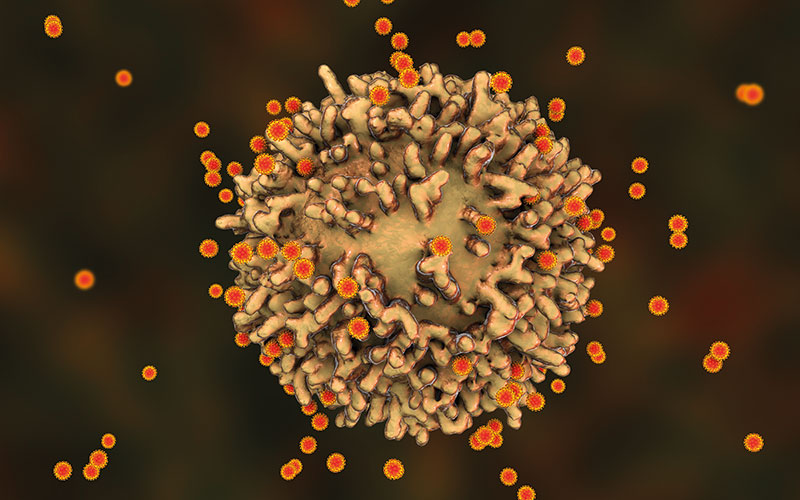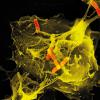A new study led by Imperial College London researchers provides the first evidence that T cells from common colds could cross-protect against infection with SARS-CoV-2.

While previous studies have shown that T cells induced by other coronaviruses can recognise SARS-CoV-2, the new study examines for the first time how the presence of these T cells at the time of SARS-CoV-2 exposure influences whether someone becomes infected.
The researchers also say their findings provide a blueprint for a second-generation, universal vaccine that could prevent infection from current and future SARS-CoV-2 variants, including Omicron.
Dr Rhia Kundu said: “Being exposed to the SARS-CoV-2 virus doesn’t always result in infection, and we’ve been keen to understand why. We found that high levels of pre-existing T cells, created by the body when infected with other human coronaviruses like the common cold, can protect against COVID-19 infection. While this is an important discovery, it is only one form of protection, and I would stress that no one should rely on this alone.”
The study began in September 2020 when most people in the UK had neither been infected nor vaccinated against SARS-CoV-2. It included 52 people who lived with someone with PCR-confirmed SARS-CoV-2 infection and who had therefore been exposed to the virus. The participants did PCR tests at the outset and four and seven days later, to determine if they developed an infection.
Blood samples from the 52 participants were taken within one to six days of them being exposed to the virus. This enabled the researchers to analyse the levels of pre-existing T cells induced by previous common cold coronavirus infections that also cross-recognise proteins of the SARS-CoV-2 virus.
The researchers found that there were significantly higher levels of these cross-reactive T cells in the 26 people who did not become infected, compared with the 26 people who did become infected.




